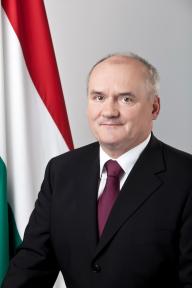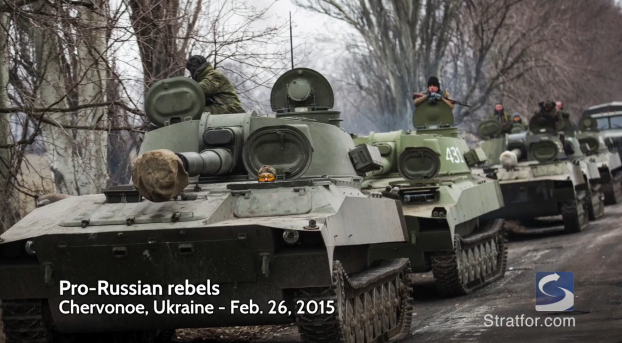Csaba Hende, Hungarian Defense Minister, presents his priorities
 (interview) A few days before the inauguration of the Hungarian presidency of the European Union, the Minister of Defense of Hungary, Csaba Hende, explains his priorities and his opinion on the current developments in foreign policy.
(interview) A few days before the inauguration of the Hungarian presidency of the European Union, the Minister of Defense of Hungary, Csaba Hende, explains his priorities and his opinion on the current developments in foreign policy.
The rotating presidency will take on a role in the shadow of the High Representative who normally has the upper hand in matters of foreign policy and defence. But defense remains an area where the sovereign power of member states is sensitive. The role and power of impetus of a presidency is therefore not negligible. The Minister summarizes this position as a "supporting-presidency". Among the priorities of the presidency, we feel the need for "pooling and sharing" which tends to become the two breasts of the CSDP. Hungary considers the “Swedish-German” paper as a good starting point. The Minister also advances the need to promote training, and presents some options to improve the use of battlegroups (funding, C2, command and control). His answers on the European External Action Service are interesting; we can see how for countries that do not have a large diplomatic network, there are many expectations on this new Service.
Priorities: pooling and sharing (again and always)
With the new Lisbon Treaty, what role does the Hungarian presidency have?
In the new institutional context, indeed, Hungary is preparing for an untraditional role for a presidency. We want to act more like a "supporting-presidency". Leadership is the High Representative who has it. And we intend to act under his direction. As the “Supporting Presidency”, our main objective is to promote European defense integration, strengthen CSDP and advance the implementation of the provisions of the Lisbon Treaty on CSDP.
During his six months, what are your priorities?
In addition to the effective management of ongoing operations, our priority is the development of military capabilities, with particular emphasis on pooling and sharing. In our opinion, it is very important to consider the budgetary crisis as an opportunity or a catalyst to improve cooperation between EU Member States in the field of European defence. The Lisbon Treaty also opens up new perspectives and offers new possibilities for cooperation in the area of CSDP. We must examine them carefully. We also consider it important to make progress in the area of CSDP training.
Finally, cooperation between the EU and NATO is a very important issue for us. And we aim to make more efficient use of existing forums for discussions. We are keen to take work forward on the High Representative's proposals.
What is your opinion on the German-Swedish paper "Pooling and sharing"?
We all have very limited budgets. It is therefore imperative to identify areas where we can move forward using cost effective and innovative solutions. Pooling and sharing is one of these methods, therefore, this issue is one of our priorities. We believe that the German-Swedish paper on pooling and sharing provides a good basis for further reflection and presents possible ways forward.
Battlegroups: the concept is always good, why not adapt it
Should battlegroups be maintained?
Yes. The European Union needs rapid reaction capabilities, including EU battlegroups to fully implement the Common Security and Defense Policy. We are convinced of it. EU battlegroups – as well as land elements of EU rapid reaction capabilities – can be used at short notice based on a consensus decision of member states. They should therefore be maintained in the future.
But the concept still adapted to reality?
It is a solid base. (Admittedly) there are some requirements that pose challenges to all member states contributing to the battlegroups tour de role. (But) despite these challenges, we believe that the concept in its current form with the additional modifications adopted recently can be used for the purpose originally intended.
What could we change?
You don't have to change everything. You have to adapt the concept. All of these efforts should be focused on increasing the ability to use battlegroups. If all Member States agree, we could discuss some issues. In particular to promote the preparation of battlegroups, to increase the availability of command and control elements (C2), as well as the methods of financing the deployment.
The EU external service: a change in diplomatic culture,
an (opportunity) for countries with less diplomatic network
What changes in European politics do you hope for with the new European diplomatic service (EEAS)?
First of all, we would like to see the EEAS fully operational as soon as possible. We see it as an innovative tool to ensure consistency and better coordination of the Union's external action, while increasing its effectiveness, consistency and, last but not least, its visibility.
We expect to create the conditions that will allow the EU to speak with one 'strong' voice. The creation of the EEAS, as well as other institutional changes (such as the “permanent” President of the European Council, the “double hat” of the High Representative for Foreign and Security Policy, etc.) could also bring greater continuity.
However, we must not forget that the Member States remain an important element and they will continue to play a key role in the formulation of EU external policy. The EEAS does not make national diplomacies obsolete. It should, however, lead to a new European diplomatic culture, in which there will be closer collaboration between national and European institutions.
Staff rotation, we hope, will lead to a deeper and broader knowledge of EU policies in national diplomatic services, and Member States' experience can directly benefit from the service.
What specific task do you expect from this Service?
We hope that the EEAS will be able to help Member States to have more focused, more substantial and better prepared debates. The Service will have to develop options, analyze possible scenarios and present them to Member States which can contribute to a more effective decision-making process allowing the EU to increase its visibility throughout the world.
Do you see consequences for the diplomatic networks of the Member States?
Yes. I think so. This can have a major impact on the revision or development of their national diplomatic network in each Member State. Member States with limited resources will be able to concentrate their efforts on certain priority areas. This will increase the overall quality of EU diplomatic work, provided that member states and the EEAS work well together.
Member States with a smaller network of (diplomatic) missions will also be able to access more countries. On this aspect, the exchange of information is crucial.
There remain, however, more sensitive areas (for national sovereignty), such as consular representation. Hungary is quite open to using the possibilities offered by the EEAS. And we accept it if it remains an optional part of the cooperation.
What area in the world today may require deployment of an EU defense mission (civilian or military)? Are you worried about Sudan (*) for example?
This is an area that we intend to follow closely during our presidency. It is, indeed, very important to maintain peace and stability in Sudan. Any armed conflict can have a detrimental effect on the Horn of Africa. The risk of instability is high. The humanitarian and security situation in Darfur could deteriorate further. We encourage all stakeholders to engage fully in the Doha negotiations.
We also encourage the Sudanese authorities to continue timely preparations so that the referendum can be held in good time. It is also important to reach an agreement on the modalities for the post-referendum period. The result of the referendum on the status of Southern Sudan is accepted by all parties.
(*) A Hungarian, a civilian employee of the Minuad (United Nations force in Darfur) was kidnapped at the beginning of October.NB: meetings of the presidency. In addition to the informal and formal meetings of Defense Ministers, and the informal meeting of directors of defense policy to be held in Budapest, Hungary will also organize a seminar on pooling and sharing, and two conferences in collaboration with the European defence.
Csaba Hende in a nutshell
Born February 5, 1960, in Szombathely (near the Austrian border), he studied law at the University of Budapest and then embarked on a career as a lawyer. In 1991, he became Parliamentary State Secretary at the Ministry of Defense in charge of legal affairs. In 1994, he returned to work as a legal consultant in Szombathely. In 1998, he became Secretary of State at the Ministry of Justice (until 2002). Then worked in the Hungarian Parliament as a clerk. After being a member of the MDF (Magyar Demokrata Forum) a small conservative party which was in government in coalition with the socialists, in 2004 it joined FIDESZ (literally "alliance of young democrats"), the party of Viktor Orbán which won the last elections and, causing some surprise, was named Defense Minister.


